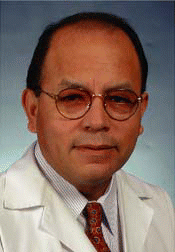Changing Patient Attitudes
Also important in shaping the future is to anticipate the changing attitudes and behaviors of patients, according to Dr. Medina. Noting patient access to health care information on the Internet, he said that patients armed with this wealth of information will undoubtedly have specific expectations for the latest and most effective care.
Explore This Issue
June 2007Perhaps the most important aspect of relating to patients in the future is to recognize that, in spite of the ever increasing and more sophisticated technological advances in medicine and in surgery, patients will always need, first and foremost, a trustworthy relationship with their physicians, Dr. Medina said. Technological advances, albeit enormously beneficial, bring with them the real danger of creating distance and uncertainty between our patients and us.
Meeting Trainees’ Needs, Expectations
With this background, Dr. Medina turned to the third aspect of creating the future-how to meet the needs and expectations of trainees. Never before have so many internal and external factors converged on the horizon that have the potential to influence the training of future head and neck surgeons, he said.
He shared 10 of these factors with audience members:
A declining applicant pool. Dr. Medina agreed with Dr. Jatin Shah that the profession should conduct a focused workforce study, advocate better reimbursement, increase exposure of medical students and surgical residents to the specialty, and develop international standards for training in head and neck surgery.
The restriction in resident work hours. Dr. Medina said restrictions are here to stay but need to be refined or the profession risks producing generations of surgeons with a unionized mentality and a sense of duty that ends with the punching of a clock.
Generational differences. Noting that today’s surgeons are more insistent on having a balanced lifestyle, he said, We should prepare to deal with a new set of career and social expectations, especially as it applies to women …. We must create the training and working conditions that members of the new generations require.
Medical economics. Through national organizations, head and neck surgeons should continue to advocate better reimbursement, he said.
The structure of training is no longer practical. With the expansion of knowledge, it will be impossible for an individual, training for a reasonable time, to master everything from otology, rhinology, allergy, and pediatric otolaryngology to laryngology, facial plastic surgery, and head and neck surgery, Dr. Medina said. He suggested a shorter training period that maximizes education and training in a specific area of practice.

Leave a Reply